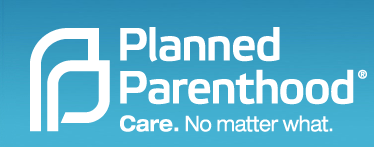The Media Research Center has been asserting a common — and dubious — argument against federal funding for Planned Parenthood to get around the inconvenient (for conservatives) fact that federal funding for Planned Parenthood is prohibited from paying for abortions and there’s no evidence Planned Parenthood has broken that prohibition.
Katie Yoder asserts in a Jan. 6 post that “government money is fungible, which means Planned Parenthood could offset costs with public funds to free up other resources for abortion.” Yoder repeated her assertion again in a Jan. 10 post, saying that “while the Hyde Amendment stipulates that federal funding, with a few exceptions, cannot be used for abortion, government funds are fungible. This means Planned Parenthood could offset costs with public funds to free up other resources for abortion.”
As proof of this claim, Yoder links back to a post she and Sarah Stites wrote in October in which they made this claim:
Although the Hyde Amendment stipulates that this money cannot be used for abortion (with a few exceptions), government funds are fungible. This means Planned Parenthood could offset costs with public funds to free up other resources for abortion. As an analogy, which Stites and Yoder illustrate, imagine giving your teen $20 to use specifically for gas. Although he can’t buy beer with that $20, he can now use his own $20 to purchase alcohol since the gas was covered by you.
First, that argument is ridiculous on its face, since because a teenager is not legally permitted to buy beer — the drinking age is 21.
Second, Yoder and Stites are wrong about the entire fungibility issue. As Slate explains:
Republicans who tout the “money is fungible” line want you to imagine that Planned Parenthood draws on one big pot of government money for all its services. But since medical services are billed and funded individually, that’s not actually how this works. For instance, if subsidies that discount contraception disappear, the price of contraception goes up, but the price of abortion will stay the same.
We know this because recent experience shows it. A few years ago, the price of some birth control pills at Planned Parenthood and other family planning clinics suddenly skyrocketed, because drug companies jacked up the price they charged non-profits for the pills. Faced with growing expenses to provide contraception, clinics charged more for contraception, often seeing costs soar to two or three times what they were before. But during this same time, the price for an abortion stayed the same. That is because, despite the endless repetition of “money is fungible,” it is not. You cannot cut off subsidies and discounts for contraception in hopes that will drive up the price of abortion. It might make abortion more common, because women will have a harder time obtaining contraception, but it won’t make it any pricier.
Vox expands on Yoder’s logic:
This argument makes some sense, but it also has dangerous implications. If you accept this premise, there’s almost no limit to what we could consider “government funding” or “government support.” Would a federal employee, whose salary is paid by the government, be violating the Hyde Amendment if she spends some of that money to obtain an abortion? Would she be using “government funds” to “keep the lights on” at Planned Parenthood if she donates to the organization?
And what about other government programs that have funding restrictions? Should we ban Safeway from accepting food stamps as long as it sells wine — because food stamps aren’t allowed to pay for wine, but accepting food stamps gives Safeway extra revenue and helps it “keep the lights on” to sell wine to other customers?
But fungibility is too entrenched of an argument for people like Yoder to simply abandon it. So expect her and others to keep pushing this highly dubious claim.
